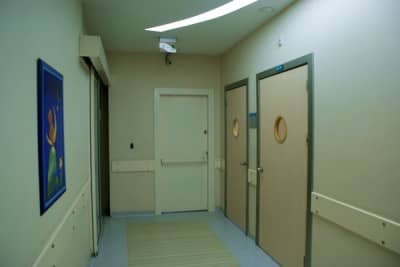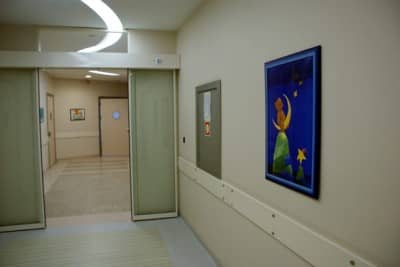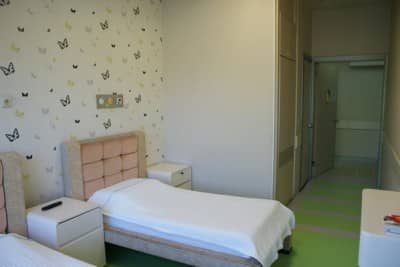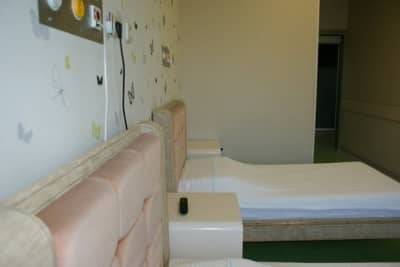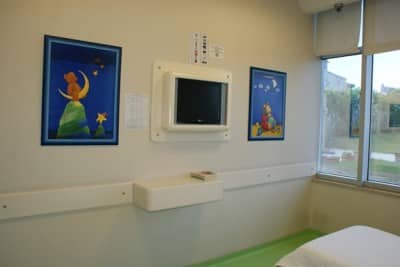Child and adolescent psychiatry is a branch of medicine that deals with the developmental, psychological, cognitive, academic and social difficulties of children and adolescents aged 0-18. Child and adolescent psychiatry, which has a wide range of tasks, works to ensure healthy development from birth to the end of adolescence and to diagnose and treat existing disorders.
From birth, the baby enters a number of developmental periods, physical, mental and social development follows a certain sequence and time. Along with the developmental stages of the brain, it experiences many physical, behavioral and mental stages. Developmental problems are among the most common problems encountered by child and adolescent psychiatry in the preschool period. Especially speech delays are among the most common problems encountered in this period. Late onset of speech compared to peers, lagging behind in speech fluency and content are the developmental problems that most frequently draw the attention of families. In a child with speech delay, this may be a reflection of a mild developmental delay or it may be the first sign of a significant neurodevelopmental disorder such as Autism. In addition to speech delay, the most important symptoms that cause us to suspect autism are that the child does not make eye contact, does not react immediately when you call his/her name, seems to live in his/her own world, does not show interest in peers and other people, and makes repetitive movements such as hand flapping or wing flapping. In case of such a suspicion, it is extremely important for the child to consult a doctor without delay, to make the necessary evaluations and to start treatment at an early stage if a diagnosis is made.
Sometimes families may apply because they complain that their children, especially after the age of 1.5-2, are very stubborn, disobedient and throw tantrums when they do not get their way. In accordance with the development of children's brains after the age of 1.5-2, children in this period may be more stubborn and difficult to deal with due to the development of individualization, separation from the mother, recognition and control of their own body. In these cases, it is extremely important that parents or caregivers are informed about child development and guided about what they can do in times of crisis. Parents who know how to control the situation can manage this period more comfortably and enjoy watching their children's development.
In kindergarten and primary school, children are expected to be able to follow certain social rules, gradually develop a sense of responsibility and begin to fulfill skills such as doing homework. During this period, children may experience symptoms such as not being able to listen to lectures, not being able to sit still, and getting bored easily while doing homework. In addition, behavioral difficulties such as not being able to maintain friendships and harming their friends may accompany this period. Children may need to be evaluated for disorders such as distractibility, mobility and impulsivity during this period.
One of the most common problems faced by families and children when starting school is the difficulty of separation from parents. It is considered normal for a normally developing child to experience difficulties for about a month after starting school, to want his/her mother with him/her, to be anxious and even cry when entering the classroom. However, over time, the child is expected to adapt to this difficulty and continue to attend school and establish friendships. If the child has difficulty in demonstrating these skills, he/she should be evaluated by a doctor.
Some children may have a more anxious temperament than others, there are children who are more cautious, who stop and think before doing something, this can be considered a temperament trait. However, it is not normal for a child to be in constant anxiety, to feel as if he/she will be harmed by the environment at any moment, to worry about the future, to appear restless and agitated, and to have difficulty falling asleep and staying asleep at night. They should be evaluated for anxiety disorders. Some children are obsessive. They may develop obsessive behaviors such as washing their hands 5 times, checking their bag many times, going through the door once more or checking what they have done frequently. If obsessions disrupt a child's time, energy and functionality, they should be considered as a disorder and a doctor should be consulted.
At the age of 6-7 years and later, tics become more common in children. Mild and occasional tics may not be a problem for the child, but if they are severe enough to disrupt the child's harmony and affect his/her functionality, it should not be too late for treatment.
Adolescence is a period in which the child gradually sheds his/her former childish characteristics, undergoes a rapid brain restructuring and is of key importance in stepping into adulthood. During this period, children change mentally and behaviorally as well as physically. They begin to experience their emotions more intensely and have difficulty controlling them. They enter a period in which they become a separate individual and have to develop an identity. It can be difficult for parents to get used to this new adolescent; they may notice that their small, controlling and obedient children become rebellious, want to be alone and withdraw from them. In fact, this is a period in which the child experiences many changes due to the restructuring of the brain and the family must be prepared for these changes. Parents may want to undergo an assessment and debriefing with their child to find out what they should do during this period.
There are also situations in childhood and adolescence that need to be taken more seriously. These are illnesses in which the behavior, speech and appearance of the child or adolescent change significantly. For younger children, symptoms such as the loss of acquired knowledge and skills over time, a decrease in the content of the child's speech, the child's seeming inability to understand what is being said, the child's uncontrolled behavior, and the child's unconsciously walking out of the house suggest serious neurological and psychiatric diseases, and these children should be hospitalized and treated in a clinic. When a child in adolescence becomes completely withdrawn, does not care about his/her cleanliness, acts as if he/she is constantly suspicious of something, cannot sleep at night, refuses to eat, etc., we should also suspect serious psychiatric illnesses.
As you can see, child and adolescent psychiatry has a very wide range of problems and it may be necessary to consult child and adolescent psychiatry in many cases other than those listed above. Children and adolescents should be evaluated differently from adults due to their developmental characteristics and should be evaluated by physicians specialized in this field. The psychiatric evaluation of children and adolescents is based on information obtained from the child, family and teachers, psychiatric examination of the child and the application of a number of necessary tests and examinations. After the evaluation, a road map for the child and adolescent is drawn up and the child and family are informed. Depending on the condition and characteristics of the child, treatment may include medication, psychotherapy, mental rehabilitation programs, occupational therapy and, where necessary, the application of newer techniques such as TMU. Children and adolescents who are admitted to the treatment program are followed up and interviews are organized at regular intervals.
The child is evaluated in detail and if any difficulties are detected, the child can continue his/her life without experiencing difficulties and deterioration in course success, behavior control and social adaptation and without damaging his/her self-confidence and self-esteem with the interventions and treatment programs.

